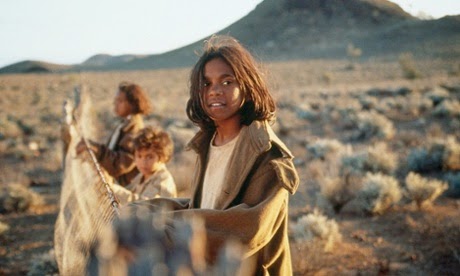Night had fallen on Melbourne by the time I had gotten
through immigration and customs. I made my
way through the crowd of smiling
people, some holding up “Welcome Home!” signs. For a moment, I entertained the
possibility that at least one of them could be for me. In the arrivals area, I
found a quiet spot and, fortunately, free wifi – always such a boon to
itinerants. There was just enough power on my phone to send a quick message to
let my folks know I had arrived safely. For a long while, I stood by my luggage
cart and eyed the exit. I was not ready, just yet, to leave the neutral space
of the airport, and step into terra incognita.
Sure, I had found myself in this same situation many
times before. But it never ceases to feel daunting, that alienness of being on
the precipice of starting life anew. En route to Australia, I broke my journey
in Beirut. At immigration in Lebanon, I surmised that the officer was asking me
if I spoke Arabic, but being unable to respond in that tongue, I apologized in
English. “How come?” He interrogated. “You were born in Kuwait,” he said,
jabbing his finger at the tell-tale information in my American passport.
Just a few weeks prior, the moustachioed official collecting
departure cards at Bombay’s Chhatrapati Shivaji International Airport – which
will always be Sahar Airport to me from my childhood memories of transiting
through there between Kuwait and Goa to see my grandmother – insisted on
speaking to me in Hindi. As if to go with the nationalistically inclined name
change of the airport, he questioned my inability to articulate myself fluently
in “the mother tongue” that is completely unknown to my mother who was born and
raised in East Africa. Waving my Overseas Citizenship of India card in my face,
he chastised me, in Hindi, for not speaking the language of “your country.” I
thought of the title of that novel, the one in which James Baldwin writes, “The aim of the dreamer, after
all, is merely to go on dreaming and not to be molested by the world. His dreams are his protection against the world.” I
thought of 1961, the year in which Goa ceased being Estado da Índia Portuguesa and, without the benefit of a
local referendum to ascertain the will of its people, was handed over to India some fourteen years after a certain “Tryst with
Destiny.” I signed my Portuguese name on the exit form, and departed the
country that neither of my parents, nor I, had been born in.
“It’s not just another country for you,” a friend
remarked. “It’s a whole other continent.” Nonetheless, some things were
immediately familiar, I thought to myself as I prepared the cash to pay the
taxi
driver near the end of the ride from Melbourne’s Tullamarine Airport. For
instance, there was the crowned head on the heavy currency – the paradoxically
common royal visage on the coinage of the Commonwealth. I remember her well
from those days of scrounging together my all too uncommon wealth as a student
in London. And English is spoken here – that other imperial legacy. I thought
of 1968, the year in which England withdrew the right of entry to British
passport holders from its former colonies and how the lie was given to the
concept of the Commonwealth. I thought of “Rivers of Blood,” Enoch Powell’s
speech delivered that same year, in which he proclaimed, “Whatever drawbacks
attended the immigrants arose not from the law or from public policy or from
administration, but from those personal circumstances and accidents which
cause, and always will cause, the fortunes and experience of one man to be
different from another's.” The rising
anti-immigrant sentiment resulted in the turning away of exiles, some of them
South Asians from once British East Africa. Never mind that they were part of
Britain’s history, or that they spoke “the same language.”
There was an awkward silence when the cab driver
finally ended the call he had been on from the time he had picked me up. I had
gathered from the phone conversation that he was Punjabi. “How long have you
lived here?” I enquired. “Ten years.” After another protracted pause, he asked,
“You’re here for work?” I nodded. “Yes. New job.” He said, “Good, good.” Leaning
forward in my seat, I queried, “So, some years ago, there were those attacks,
no? On Indian students… Some were murdered?” His head bobbed in assent. “But it
is safe. You know… just mind your own business. You do your work and you go
home after and everything will be fine.”
I thought about whose home this country really is and
I thought of homelessness. I thought of 1869 and the ironically named
Aboriginal Protection Act, which led to the Stolen Generations of
state-abducted indigenous children. I thought of Doris Pilkington’s Follow the Rabbit Proof Fence, which was
turned into a film and tells the story of just such Aboriginal children who had
been taken away from their families. I thought of the earliest South Asians to
come to this country, the so called “Afghans” who served as cameleers in the
1860s, transporting goods across Australia’s deserts - Muslim men who married
into Aboriginal communities. I thought of the migrant who goes everywhere and
belongs nowhere. “This is your stop,” the driver announced as he slowed down. “All
the best!”
This article appears in the June 2014 issue of India Currents. A shorter version of it can be read in The Goan.




No comments:
Post a Comment